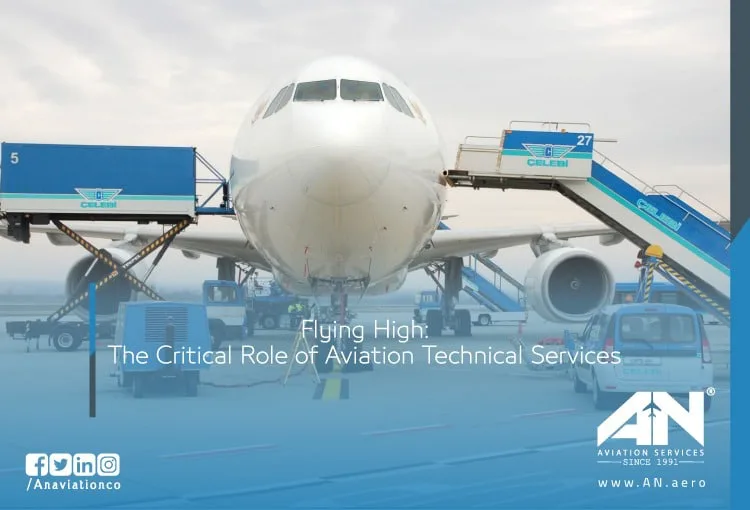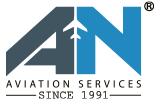
The aviation industry thrives on precision, safety, and efficiency. At the heart of it all are Aviation Technical Services, the backbone ensuring that every aircraft is in perfect condition to take to the skies. Whether it’s scheduled maintenance, unscheduled repairs, or sophisticated upgrades, aviation technical services form a crucial layer of support in global air travel. But what exactly do these services encompass, and why are they indispensable? Let’s dive in.
What Are Aviation Technical Services?
Aviation technical services refer to a comprehensive range of specialized solutions that maintain and improve the safety, reliability, and performance of aircraft. These services are not limited to mechanical repairs—they cover a broad spectrum, including inspections, modifications, engineering solutions, and maintenance programs tailored to meet regulatory requirements.
With air travel booming and global fleets expanding, aviation technical services ensure that aircraft operate safely, comply with regulations, and achieve maximum operational efficiency. In many ways, these services represent the silent heroes of the aviation industry, working tirelessly behind the scenes.
Key Components of Aviation Technical Services
1. Aircraft Maintenance:
One of the cornerstones of aviation technical services is maintenance. Aircraft maintenance is divided into two main categories:
- Line Maintenance: This is routine maintenance performed daily or between flights. Tasks include checking fluid levels, tire pressure, and overall system performance to ensure the aircraft is ready for its next journey.
- Base Maintenance: More comprehensive than line maintenance, base maintenance involves tasks like component replacements, deep inspections, and structural repairs. These services are typically performed at specialized facilities and can take weeks to complete.
2. Inspections and Compliance:
Aircraft must adhere to strict aviation regulations set by authorities like the Federal Aviation Administration (FAA) or the European Union Aviation Safety Agency (EASA). Aviation technical services ensure compliance through:
- Regular Inspections: Scheduled inspections like A, B, C, and D checks identify potential issues before they escalate.
- Certification Support: Ensuring that aircraft meet all airworthiness requirements to obtain or maintain necessary certifications.
These inspections are critical for minimizing risks and maintaining the highest safety standards.
3. Engineering and Modifications:
As technology evolves, aircraft must keep pace with new advancements to enhance performance and meet updated safety requirements. Aviation technical services provide engineering expertise to:
- Upgrade avionics systems to improve navigation and communication.
- Modify cabin interiors for better passenger comfort.
- Enhance aerodynamics for improved fuel efficiency.
- Adapt older aircraft to meet new environmental standards.
These modifications not only improve aircraft performance but also extend their operational lifespan.
4. Component Repair and Overhaul:
Aircraft consist of countless components, from landing gear to hydraulic systems, and each one plays a critical role in flight safety. Aviation technical services specialize in repairing, overhauling, and testing these components to ensure they function flawlessly. This includes:
- Repairing damaged components to their original specifications.
- Overhauling engines and major systems to meet manufacturer standards.
- Testing and calibrating avionics and mechanical systems for accuracy.
By focusing on component-level solutions, aviation technical services reduce downtime and maintain reliability.
5. Emergency Repairs:
Aircraft can face unexpected issues, whether due to mechanical failures, weather conditions, or operational incidents. Aviation technical services provide rapid-response teams equipped to handle emergency repairs anywhere in the world. From minor fixes to major structural repairs, these teams ensure that aircraft can return to service safely and efficiently.
Why Are Aviation Technical Services So Important?
1. Safety First:
Safety is the aviation industry’s top priority, and technical services play a vital role in upholding it. By conducting rigorous maintenance, inspections, and repairs, they ensure that aircraft meet stringent safety standards. This proactive approach minimizes the risk of accidents and incidents.
2. Regulatory Compliance:
The aviation industry operates under a complex web of regulations. Aviation technical services help airlines and operators navigate these requirements, ensuring compliance with national and international standards. This not only avoids penalties but also enhances operational credibility.
3. Operational Efficiency:
Downtime is costly for airlines. With efficient maintenance and rapid turnaround times, aviation technical services ensure that aircraft spend more time in the skies and less time on the ground. This efficiency boosts profitability while maintaining reliability.
4. Cost Management:
Regular maintenance and proactive inspections help identify potential issues early, preventing costly repairs or replacements down the line. By extending the life of components and reducing unscheduled downtime, aviation technical services save operators significant costs.
5. Technological Adaptation:
With aviation technology advancing rapidly, technical services ensure that aircraft stay ahead of the curve. Whether it’s retrofitting older aircraft with new systems or introducing cutting-edge technologies, these services keep fleets competitive and compliant.
The Future of Aviation Technical Services
As the aviation industry continues to grow, aviation technical services are evolving to meet new challenges. Key trends shaping the future include:
- Digital Transformation: The integration of AI, machine learning, and predictive analytics is enabling more precise maintenance schedules and faster diagnostics.
- Sustainability Initiatives: Technical services are adopting eco-friendly practices, such as repairing instead of replacing components and improving fuel efficiency through advanced aerodynamics.
- Autonomous Inspections: Drones and robotic systems are being used for faster, more accurate aircraft inspections, reducing human error and turnaround times.
- Global Expansion: With the rise of international travel, technical service providers are establishing facilities worldwide to support global fleets.
These innovations are set to revolutionize the aviation technical services sector, making it even more efficient and indispensable.
Conclusion
Aviation technical services are the unsung champions of the aviation industry, ensuring that every aircraft is safe, efficient, and ready to soar. From maintenance and inspections to emergency repairs and engineering solutions, these services form the backbone of modern air travel.
As the industry evolves, so too will the role of aviation technical services, incorporating advanced technologies and sustainable practices to meet the demands of a growing global fleet. Whether it’s enhancing safety, improving efficiency, or adapting to new technologies, aviation technical services will continue to play a pivotal role in the future of air travel.
So, the next time you board a flight, remember the meticulous work happening behind the scenes to make your journey safe and seamless. Aviation technical services aren’t just about fixing planes—they’re about enabling the world to fly higher, safer, and more efficiently than ever before.

